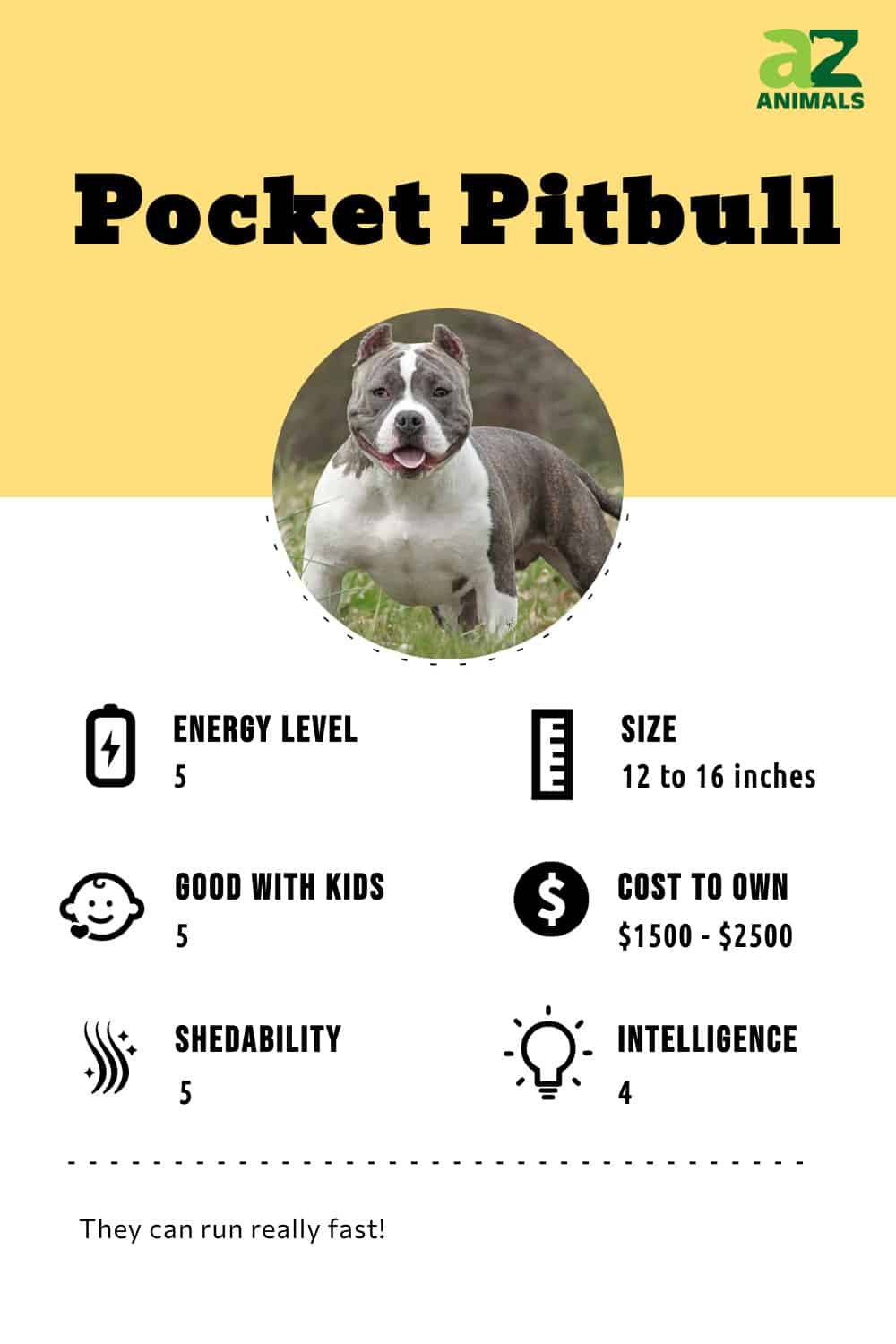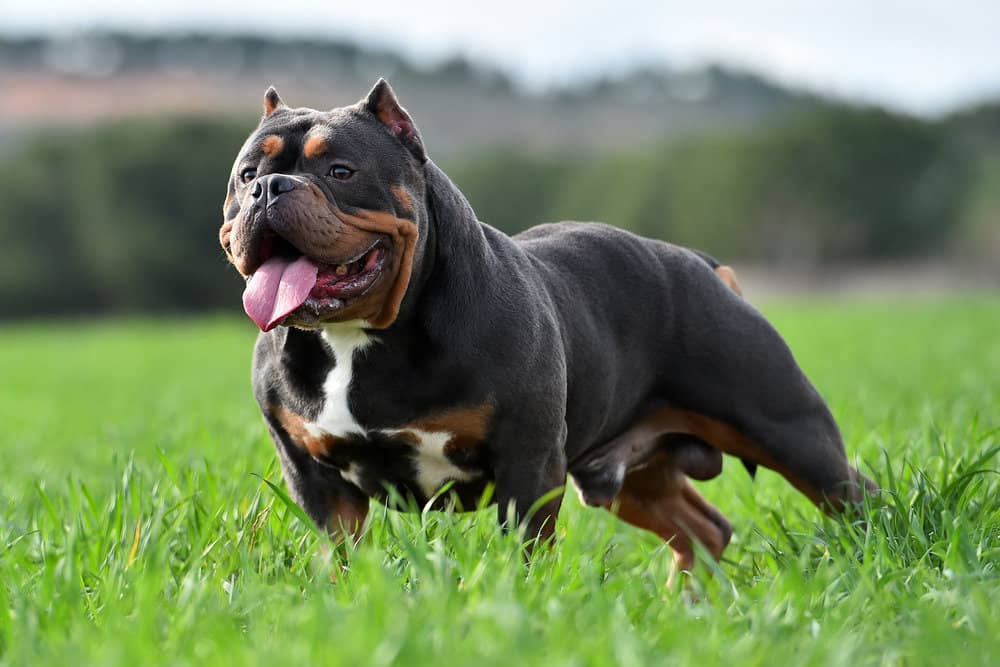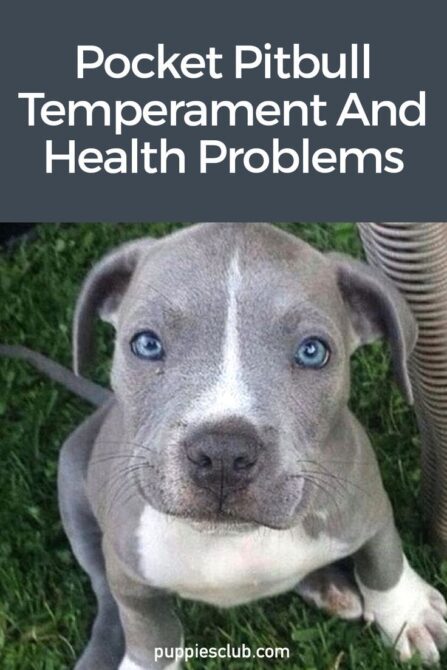Pocket Pitbull Temperament may experience health issues such as hip dysplasia, obesity-related heart disease, and eye problems. They are known for their friendly and gentle temperament, making them a great choice for a family dog.
Pitbulls are also susceptible to health problems like intervertebral disc disease and cerebellar abiotrophy. They have a muscular physique and a short, straight coat, and with proper training and socialization, they can grow up to be protective and friendly dogs.
Other common health concerns for Pocket Pitbulls include hypothyroidism, allergies, and various eye issues. Despite their potential health issues, Pocket Pitbulls can make wonderful pets and companions.

Pocket Pitbull Temperament
Pocket Pitbull Temperament
Pocket Pitbull Temperament, also known as American Bullies, has a friendly and gentle temperament. They are rarely aggressive and can be great family dogs. However, they may be prone to health issues such as hip dysplasia, heart disease, and eye problems.
Friendly And Gentle Demeanor
The Pocket Pitbull’s parent breed, the American Bully, is known for its friendly and gentle demeanor. They are rarely aggressive and have a natural affinity for people. This makes them great companions for families, including households with children. With proper socialization and training, Pocket Pitbulls can grow to be well-rounded and friendly dogs.
Athletic And Active
In addition to their friendly nature, pocket pitbulls are also highly athletic and active. Their parent breeds are known for their strong and muscular physique, which is passed down to these compact, pocket-sized versions. They have a lot of energy to burn, and they enjoy being physically challenged. Regular exercise and mental stimulation are essential for their well-being. Whether it’s a long walk, a game of fetch, or agility training, Pocket Pitbulls will thrive in an active environment.
Great Choice For A Family Dog
The combination of the Pocket Pitbull’s friendly demeanor and athletic nature makes them an excellent choice for a family dog. They are loyal and protective, making them great companions and protectors for their loved ones. Their small size makes them suitable for various living situations, including apartments or homes with limited outdoor space. With the right training and socialization, Pocket Pitbulls can get along well with other pets and animals, ensuring a harmonious environment for the entire family.
Overall, the temperament of a Pocket Pitbull is a wonderful blend of friendliness, athleticism, and loyalty. With the proper care and training, these dogs can be loving family members who bring joy and happiness to their owners’ lives.

Pocket Pitbull Temperament
Common Health Problems In Pocket Pitbulls
Pocket Pitbulls, like any other dog breed, are susceptible to certain health problems. Owners need to be aware of these issues so they can provide the best possible care for their furry friends. Here are some common health problems that pocket Pitbulls may experience:
Hip Dysplasia
Hip dysplasia is a common condition in which the hip joint doesn’t develop properly, resulting in discomfort and difficulty with mobility. This is a hereditary condition that can be exacerbated by factors such as obesity. To prevent hip dysplasia, it’s important to provide a balanced diet and regular exercise for your pocket Pitbull. Regular veterinary check-ups can help monitor their hip health as well.
Obesity-related Diseases
Obesity is a growing concern among pocket Pitbulls and can lead to a range of health issues. Excessive weight puts strain on their joints and can lead to conditions like arthritis and hip dysplasia. Obesity also increases the risk of heart disease and can contribute to other obesity-related diseases. It’s crucial to maintain a proper diet and exercise regimen to keep your pocket Pitbull at a healthy weight.
Eye Issues
Eye issues such as cataracts, cherry eye, and progressive retinal atrophy can affect pocket Pitbulls. Regular eye examinations by a veterinarian can help detect these issues early on and ensure proper treatment. Keeping their eyes clean and free from irritation is also important for preventing eye problems.
Intervertebral Disc Disease
Intervertebral disc disease (IVDD) is a condition that affects the spinal discs, often causing pain and mobility problems. This can be particularly common in pocket Pitbulls due to their muscular physique. Providing a comfortable and supportive environment, as well as regular exercise to keep their muscles strong, can help prevent and manage IVDD.
Cerebellar Abiotrophy
Cerebellar abiotrophy is a neurological condition that affects coordination and motor skills, and it can occur in pocket Pitbulls. While there is no cure for this condition, proper care and management can minimize its impact on the dog’s quality of life. Regular check-ups with a veterinarian can help monitor any progression.
Hypothyroidism
Hypothyroidism is a hormonal disorder that occurs when the thyroid gland doesn’t produce enough thyroid hormone. This can lead to weight gain, lethargy, and other health issues. Regular blood tests can help diagnose and manage this condition, ensuring that your pocket Pitbull receives the necessary medication or treatment.
Allergies
Pocket Pitbulls can develop allergies to various substances, including certain foods, environmental allergens, and flea bites. Identifying and avoiding allergens can help minimize the discomfort and health issues associated with allergies. Consult with a veterinarian to determine the best approach for managing your pocket Pitbull’s allergies.
Heart Issues
Heart disease, including conditions like congestive heart failure and murmurs, can affect pocket Pitbulls. Regular check-ups, along with a nutritious diet and exercise routine, can help maintain cardiovascular health. It’s important to watch for signs of heart problems, such as difficulty breathing or fatigue, and seek veterinary care if necessary.
Skin Problems
Pocket Pitbulls may be prone to various skin problems, such as allergies, infections, and dermatitis. Regular grooming, including baths and brushing, can help maintain their skin health. Providing a balanced diet and avoiding common allergens can also help prevent skin issues.
Lifespan And Care For Pocket Pitbulls
The average lifespan of a Pocket Pitbull is around 12 to 14 years. However, with proper care, some can live even longer. It’s important to note that individual lifespans may vary depending on various factors such as genetics, diet, exercise, and overall health maintenance.
Grooming plays a crucial role in maintaining the health and appearance of your pocket pitbull. Regularly brushing their short, straight coat helps minimize shedding and keeps their skin healthy. Additionally, periodic bathing, dental care, and nail trimming are essential for their overall well-being.
When it comes to feeding, it’s important to provide a balanced and nutritional diet to support their active lifestyle. Ensure that their diet includes high-quality protein, healthy fats, and adequate amounts of vitamins and minerals. Consult with your veterinarian to determine the appropriate portion sizes and feeding frequency based on your dog’s age, size, and activity level.
Training and socialization are vital aspects of raising a well-behaved and well-adjusted pocket pitbull. Start training and socializing your puppy from an early age to instill good manners and ensure they grow into a friendly and confident adult dog.
Positive reinforcement methods, such as rewards and praise, work best for training Pocket Pitbulls. Focus on teaching basic commands, leash walking, and proper behavior around people and other animals. Training sessions should be short, frequent, and consistent for better results.
Socialization should involve exposing your Pocket Pitbull to various environments, sounds, sights, and people. This helps them develop the necessary social skills and prevents behavioral issues such as aggression or fearfulness. Take them to different places, introduce them to different people and animals, and encourage positive interactions.
Remember, consistent training and socialization throughout their lives are important for maintaining their good temperament and preventing behavior problems.

Pocket Pitbull Temperament
Frequently Asked Questions Of Pocket Pitbull Temperament And Health Problems
What Are The Health Issues With Pocket Pitbulls?
Pocket Pitbulls can be prone to health issues such as hip dysplasia, obesity-related problems like heart disease, eye issues, and allergies. However, with proper socialization and training, they can be friendly and protective pets. Taking care of their health, providing a balanced diet, and regular exercise can help prolong their lifespan.
What Is The Temperament Of A Pocket Pitbull?
The pocket pitbull, a crossbreed of the American Bully, has a friendly and gentle temperament. They are not typically aggressive and are known for their athleticism, making them ideal for families. However, they can be protective, so socialization and training are important.
They may also be prone to health issues such as hip dysplasia, allergies, and eye problems.
Do Pitbulls Have A Lot Of Medical Issues?
Pocket Pitbulls, like any Pitbull breed, may have a few medical issues. They can be prone to hip dysplasia, especially as they get older or if they become obese. They may also have eye issues. However, with proper care, socialization, and training, they can be friendly and healthy pets.
What Is The Lifespan Of A Pocket Bully?
The lifespan of a pocket bully varies, but on average, they can live for around 10 to 12 years.
Conclusion
Pocket Pitbull Temperament is known for its friendly and gentle demeanor, making it an ideal choice for a family pet. However, they can be prone to various health issues such as hip dysplasia, obesity-related heart disease, eye problems, and allergies. It is important to provide proper care, socialization, and training to ensure their well-being.
Despite these potential health concerns, with the right care, Pocket Pitbulls can lead happy and fulfilling lives. So, if you’re considering adopting a Pocket Pitbull, make sure to prioritize their health and provide them with the love and care they deserve.



